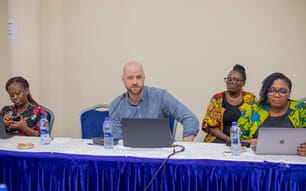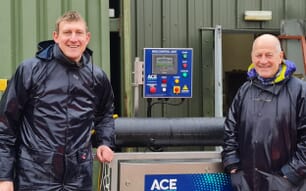Overfishing is a global problem with alarming and indisputable consequences: 90 per cent of fish stocks are either fully or overexploited. Greenpeace calls on governments to urgently start removing monster boats like those named on the list from oversized industrial fishing fleets around the world.
“A relatively small number of industrial fishing barons are recklessly making huge profits from our oceans, with little respect for environmental and social considerations. They use tricks – like changing the identity and flag of their vessels or using front companies and tax havens to increase their access to fishing grounds or, blatantly circumvent rules and regulations. Governments must stop turning a blind eye to overfishing by taking action on monster boats and support low-impact fishers instead,” said Nina Thuellen, EU fisheries project coordinator.
Monster boats like the ones on the list contribute most to the depletion and destruction of our oceans and affect coastal fishing communities around the world. Greenpeace used a set of criteria to identify monster boats, including:
• the vessels’ fish catching and holding capacity;
• the destructiveness of the vessels’ fishing gear;
• operational characteristics of the vessels and companies concerned;
• the environmental and socio-economic impact of fishing activities; and
• involvement in illegal, unreported and unregulated (IUU) fishing or other dodgy activities.
Various United Nations bodies have repeatedly warned of the dire situation of fish stocks and have identified excess fishing capacity as a critical driver of overfishing. Parts of the EU fleet are considered to be able to fish two to three times the sustainable level.
In the coming months, fisheries ministers in the European Union (EU) will set catch levels for 2015 and distribute resulting fishing opportunities to companies and individuals nationally. Catch levels for Baltic cod and salmon stocks, agreed in October, exceed recommended levels, indicating that ministers are quick to please the industry with little consideration for stock recovery.
By focusing attention on some of the top culprits of global overfishing, Greenpeace is challenging governments to eliminate excessive fishing capacity compared to what the oceans can provide, where it matters most, and to give preferential access to fishing opportunities to low-impact fishers, as required under the new EU Common Fisheries Policy.
Greenpeace has also released a website calling on people to sign up in support of low impact fishers and help ensure fair fishing http://www.greenpeace.org/fishfairly


